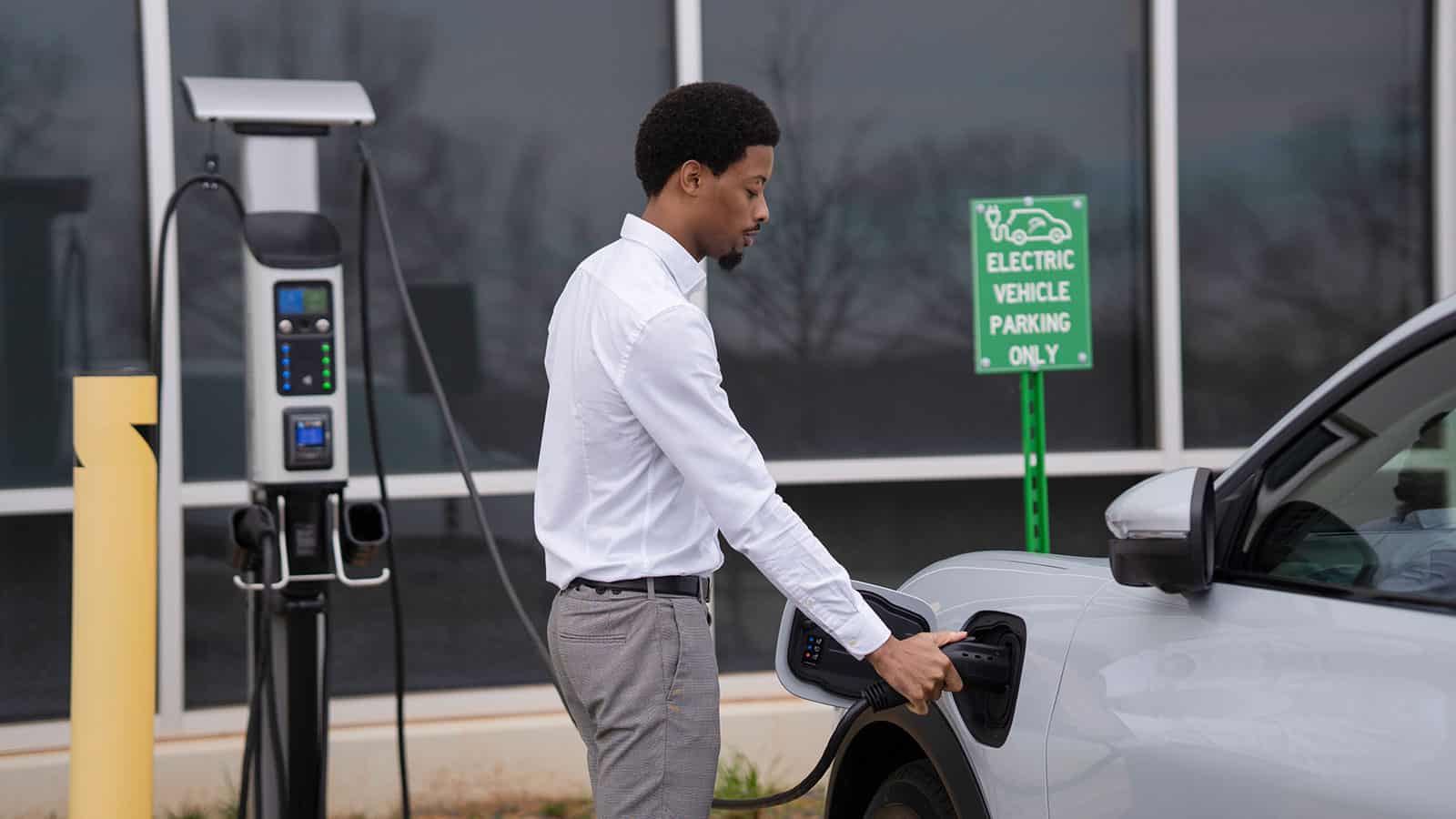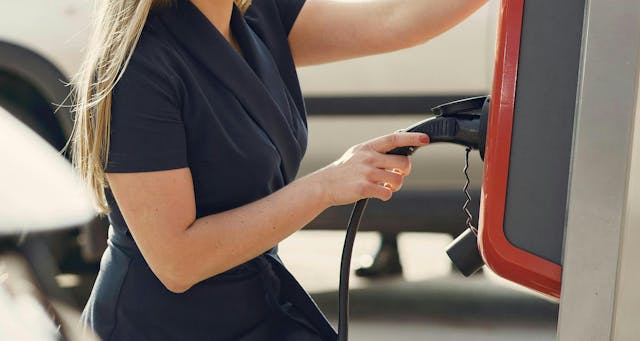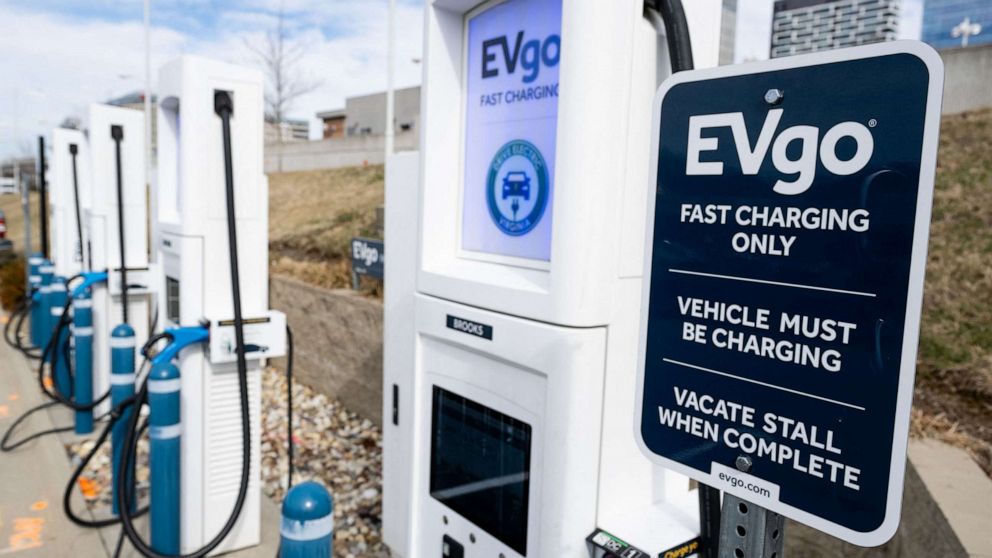Everything You Should Know Before You Decide to Buy EV Charging news
Everything You Should Know Before You Decide to Buy EV Charging news
Blog Article
Leading EV Charging Information: Secret Updates on Infrastructure and Technology

Recent Improvements in Fast-Charging Innovation

In addition, innovations in battery technology, including improved thermal monitoring systems and higher power density batteries, enhance fast-charging capacities. These developments reduce the risk of battery deterioration during quick charging, guaranteeing longevity and efficiency for EV owners.
Furthermore, the integration of clever billing remedies is boosting user experience, allowing real-time surveillance and dynamic rates designs. EV Charging news. This flexibility allows motorists to optimize charging times and expenses based on grid need
As automakers proceed to buy fast-charging networks, the partnership between market stakeholders is critical. Collaborations in between billing terminal suppliers and auto manufacturers are paving the means for considerable protection, ultimately promoting a more robust EV ecological community. These improvements are critical in supporting the change to sustainable transportation.
Government Campaigns for Billing Expansion
Government efforts play a vital role in the development of electric car (EV) charging infrastructure, helping with the shift to sustainable transport. Different government and state programs are being implemented to boost billing availability, decrease the financial concern on consumers, and promote the fostering of electrical vehicles.
Significantly, the united state federal government has actually assigned significant funding via the Framework Investment and Jobs Act, which allocates $7.5 billion for EV billing network advancement across the country. This financing is focused on releasing countless new billing terminals, especially in underserved areas, thereby resolving variety anxiety among potential EV customers.
In addition, many states are enacting regulation to streamline the permitting process for billing terminal installations, which is essential for accelerating implementation. Motivations such as tax obligation credit ratings and rebates for both customers and organizations are additionally being presented to motivate the installation of charging framework.
In addition, public-private collaborations are increasingly ending up being a focus, leveraging exclusive investment to match government financing. These efforts emphasize a collective technique crucial for building a extensive and reliable EV billing network, ultimately contributing to a greener and even more sustainable future.
Cutting-edge Battery Solutions Enhancing Effectiveness
Revolutionizing the landscape of electrical automobile (EV) innovation, cutting-edge battery services are dramatically enhancing efficiency and efficiency. Advances in battery news chemistry, particularly with lithium-sulfur and solid-state batteries, are causing raised power density, which enables longer arrays and faster billing times. These brand-new battery kinds have the potential to exceed conventional lithium-ion batteries by offering higher capacities while minimizing weight, thereby improving overall automobile efficiency.
In addition, growths in battery administration systems (BMS) are maximizing power use and expanding battery lifespan. Intelligent formulas monitor battery health and wellness and efficiency, enabling real-time adjustments to charging and discharging processes. This not just boosts the effectiveness of the battery but likewise makes sure a much more sustainable and reliable power resource for EVs.
Furthermore, the integration of reusing innovations is addressing the environmental impact of battery manufacturing and disposal. Advancements in second-life applications for EV batteries are promoting their use in energy storage space systems, adding to a circular economic situation.
As these innovative battery solutions remain to progress, they assure to transform the EV market, making electric lorries more accessible and attractive to a more comprehensive audience while supporting worldwide sustainability goals.

Collaboration In Between Automakers and Billing Networks
Identifying the vital need for a robust billing framework, car manufacturers are increasingly collaborating with charging network carriers to enhance the EV ownership experience (EV Charging news). These partnerships intend to develop a smooth billing community that profits consumers and supports the change to electric automobiles
Major vehicle brand names are signing up with pressures with recognized billing networks to expand their charging terminal insurance coverage, making sure vehicle drivers have accessibility to convenient and trustworthy billing alternatives. As an example, partnerships with networks like ChargePoint and Electrify America allow car manufacturers to integrate charging options straight right into their automobiles' navigating systems, directing customers to the closest stations and supplying real-time accessibility updates.
Furthermore, these partnerships commonly lead to the advancement of fast-charging innovations that dramatically decrease the moment required to reenergize an EV. By pooling resources and experience, car manufacturers and billing networks can introduce quicker, producing solutions that fulfill the expanding demand for electric movement.
On top of that, joint initiatives may likewise cause even more standard charging methods, which can ease consumer complication and advertise more comprehensive EV adoption. On the whole, these calculated alliances are pivotal in developing a effective and user-friendly billing facilities that fulfills the needs of an expanding electrical lorry market.
Challenges Dealing With EV Charging Infrastructure
As the electric car market proceeds to expand, several difficulties are surfacing that prevent the development of an extensive charging infrastructure. Among the key obstacles is the insufficient variety of charging terminals, particularly in country and underserved metropolitan areas. This look at these guys gap produces array anxiety among potential EV customers, deterring them from making the button.
Additionally, the absence of standardization in billing innovation complicates the facilities landscape. Variants in plug kinds and charging speeds can develop confusion for users and raise operational intricacies for billing network operators.
An additional pressing problem is the high expense connected with the installation and upkeep of billing stations, which can be an obstacle for both exclusive services and public entities. Lastly, regulative obstacles and zoning constraints can delay the deployment of billing framework, restraining progress in broadening essential services. Resolving these difficulties will be crucial for cultivating a durable EV community that supports the change to lasting transportation.
Verdict
In conclusion, the continuous improvements in EV charging modern technology, sustained by considerable government initiatives and innovative battery options, are important for the development and effectiveness of electric vehicle framework. Collaborations between automakers and charging carriers further enhance station insurance coverage, attending to the growing need for accessible billing alternatives. Despite obstacles that linger within the EV charging landscape, these growths indicate a positive trajectory in the direction of a more efficient and lasting electrical lorry ecological community.
Technologies in charging infrastructure have actually led to the growth of ultra-fast chargers read review qualified of delivering up to 350 kW of power, dramatically decreasing billing times. Variants in plug kinds and charging rates can create complication for customers and boost functional intricacies for billing network operators.In conclusion, the ongoing improvements in EV billing technology, sustained by significant government efforts and innovative battery services, are critical for the development and effectiveness of electrical car infrastructure. Partnerships between car manufacturers and charging service providers better enhance station insurance coverage, resolving the growing demand for obtainable billing options. In spite of challenges that continue within the EV charging landscape, these developments represent a positive trajectory towards a more effective and lasting electric vehicle ecological community.
Report this page